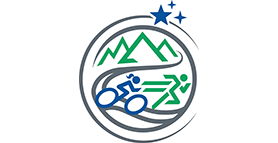Craig G. Crandall, Ph.D.
Professor of Internal Medicine,
UT Southwestern Medical Center
Director of the Thermal and Vascular Physiology Laboratory
Education
- B.S. in Exercise Physiology from Brigham Young University
- M.S. in Exercise Physiology from University of Oregon
- Ph.D. in Biomedical Sciences – Physiology from University of North Texas Health Science Center at Fort Worth
- Post-Doctoral Fellow – Department of Physiology, University of Texas Health Science Center at San Antonio
Contact Information
Phone: 214-345-4623
Email: CraigCrandall@texashealth.org
-
Low Dose Ketamine Affects Blood Pressure, but not Muscle Sympathetic Nerve Activity, during Progressive Central Hypovolemia without Altering ToleranceHuang, M., J.C. Watso, G. Moralez, M.N. Cramer, J.M. Hendrix, J.Yoo, M.B. Badrov, Q. Fu, C. Hinojosa-Laborde, C.G. Crandall. Low Dose Ketamine Affects Blood Pressure, but not Muscle Sympathetic Nerve Activity, during Progressive Central Hypovolemia without Altering Tolerance. J Physiol (in press)
-
Dietary nitrate supplementation does not influence thermoregulatory or cardiovascular strain in older individuals during severe ambient stressCramer, M.N., M. Hieda, M. Huang, G. Moralez, C.G. Crandall. Dietary nitrate supplementation does not influence thermoregulatory or cardiovascular strain in older individuals during severe ambient stress. Exp Physiol (in press). https://pubmed.ncbi.nlm.nih.gov/32816341/
-
Burn injury does not exacerbate heat strain during exercise while wearing body armor
Fischer, M, M.N. Cramer, M. Huang, L.N. Belval, J.C. Watso, F.A. Cimino, C.G. Crandall. Burn injury does not exacerbate heat strain during exercise while wearing body armor. Med Sci Sports Exerc 52:2235-2241, 2020. https://pubmed.ncbi.nlm.nih.gov/32936596/
-
Keeping Older Individuals Cool in Hot and Moderately Humid Conditions: Wetted Clothing with and without an Electric FanCramer, M.N., M. Huang. G. Moralez, C.G. Crandall. Keeping Older Individuals Cool in Hot and Moderately Humid Conditions: Wetted Clothing with and without an Electric Fan. J Appl Physiol 128:604-611, 2020.https://pubmed.ncbi.nlm.nih.gov/32027545/
-
Exercise Thermoregulation with a Simulated Burn Injury: Impact of Air TemperatureCramer, M.N., G. Moralez, M. Huang, K. Kouda, P.Y.S. Poh, C.G. Crandall. Exercise Thermoregulation with a Simulated Burn Injury: Impact of Air Temperature. Med Sci Sports Exerc 52:712-719, 2020. https://pubmed.ncbi.nlm.nih.gov/31609298/
-
Progressive exercise training improves maximal aerobic capacity in individuals with well-healed burn injuries
Romero, S.A., G. Moralez, M.F. Jaffrey, M. Huang, M.N. Cramer, N. Romain, K. Kouda, R.G. Haller, C.G. Crandall. Progressive exercise training improves maximal aerobic capacity in individuals with well-healed burn injuries. Am J Physiol Reg Comp Physiol 317:R563-R570, 2019. https://pubmed.ncbi.nlm.nih.gov/31433672/
-
Tolerance to a haemorrhagic challenge during heat stress is improved with inspiratory resistance breathing.Huang, Mu, R.M. Brothers, M.S. Ganio, R.A.I. Lucas, M.N. Cramer, G. Moralez, V.A. Convertino, C.G. Crandall. Tolerance to a haemorrhagic challenge during heat stress is improved with inspiratory resistance breathing. Exp Physiol 103:1243-1250, 2018.https://pubmed.ncbi.nlm.nih.gov/29947436/
-
Age Modulates Physiological Responses during Fan Use under Extreme Heat and Humidity.Gagnon, D., S.A. Romero, M.N. Cramer, K. Kouda, P.Y. Poh, O. Jay, C.G. Crandall. Age Modulates Physiological Responses during Fan Use under Extreme Heat and Humidity. Med Sci Sports Exerc 49:2333-2342, 2017. https://pubmed.ncbi.nlm.nih.gov/29873123/
-
Cardiac and thermal strain of elderly adults exposed to extreme heat and humidity with and without electric fan useGagnon, D., S.A. Romero, M.N. Cramer, O. Jay, C.G. Crandall. Cardiac and thermal strain of elderly adults exposed to extreme heat and humidity with and without electric fan use. JAMA 316: 989-991, 2016. https://pubmed.ncbi.nlm.nih.gov/27599335/
-
The effect of passive heat stress and exercise-induced dehydration on the compensatory reserve during simulated hemorrhageGagnon, D., Z.J. Schlader, A. Adams, E. Rivas, J. Mulligan, G.Z. Grudic, V.A. Convertino, J.T. Howard, C.G. Crandall. The effect of passive heat stress and exercise-induced dehydration on the compensatory reserve during simulated hemorrhage. Shock 46(Suppl 1): 74-82, 2016. https://pubmed.ncbi.nlm.nih.gov/27183303/

